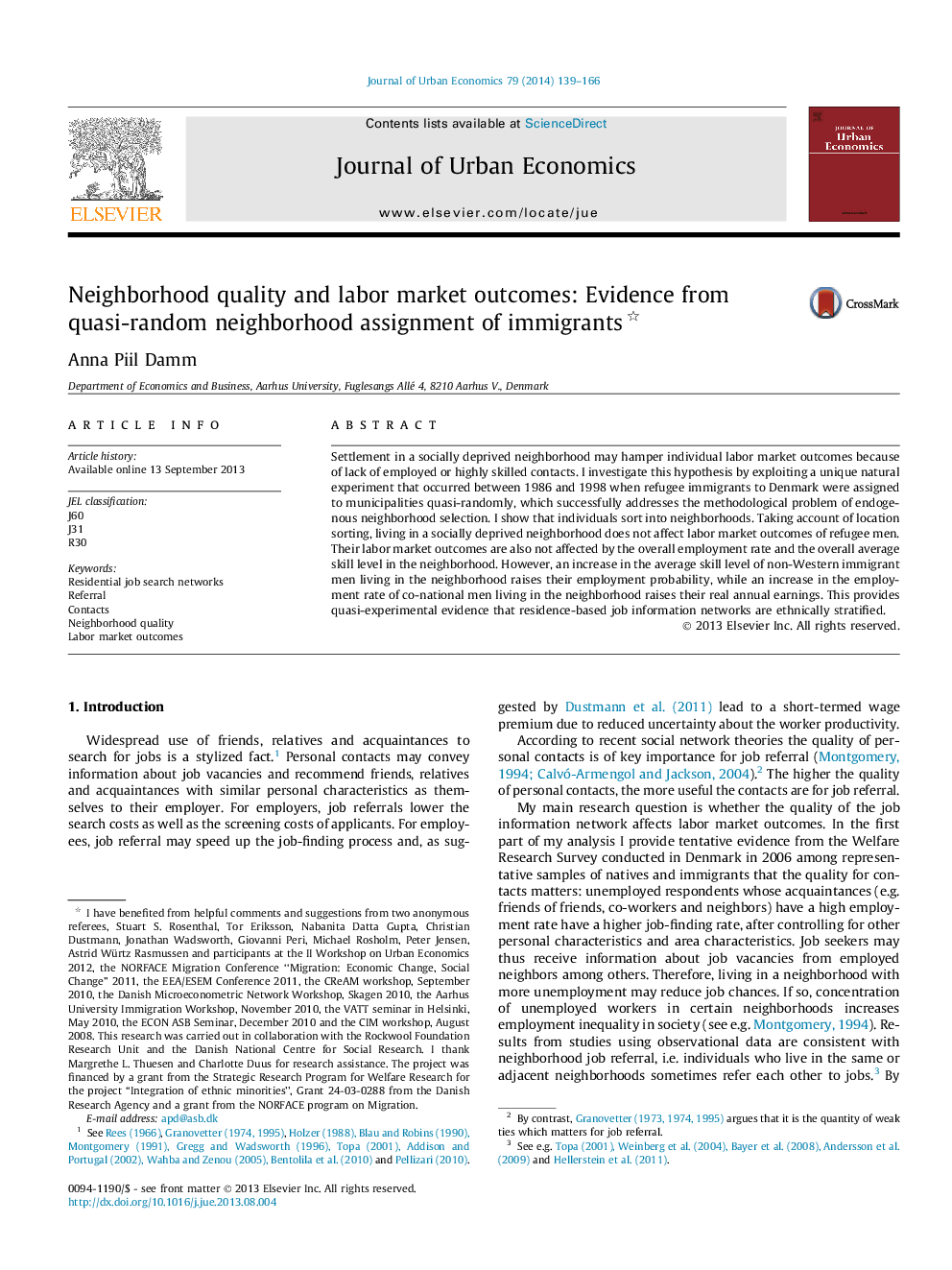| Article ID | Journal | Published Year | Pages | File Type |
|---|---|---|---|---|
| 971197 | Journal of Urban Economics | 2014 | 28 Pages |
Settlement in a socially deprived neighborhood may hamper individual labor market outcomes because of lack of employed or highly skilled contacts. I investigate this hypothesis by exploiting a unique natural experiment that occurred between 1986 and 1998 when refugee immigrants to Denmark were assigned to municipalities quasi-randomly, which successfully addresses the methodological problem of endogenous neighborhood selection. I show that individuals sort into neighborhoods. Taking account of location sorting, living in a socially deprived neighborhood does not affect labor market outcomes of refugee men. Their labor market outcomes are also not affected by the overall employment rate and the overall average skill level in the neighborhood. However, an increase in the average skill level of non-Western immigrant men living in the neighborhood raises their employment probability, while an increase in the employment rate of co-national men living in the neighborhood raises their real annual earnings. This provides quasi-experimental evidence that residence-based job information networks are ethnically stratified.
